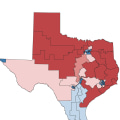Campaign finance laws have a significant impact on the landscape of candidate campaigns in Southeast Texas. These regulations, which govern the use of money in political campaigns, shape the strategies and outcomes of candidates running for office in this region.
The Basics of Campaign Finance Laws
Campaign finance laws are regulations that aim to promote transparency and prevent corruption by limiting the flow of money in political campaigns. In Southeast Texas, these laws are primarily overseen by the Texas Ethics Commission, which ensures that candidates report and disclose their campaign contributions and expenditures. These reports are then made available to the public.The Impact on Campaign Strategies
Campaign finance laws greatly influence the strategies used by candidates in Southeast Texas.With restrictions on how much money they can raise and spend, candidates must carefully plan and budget their campaigns to make the most of their resources. One common strategy used by candidates in this region is grassroots campaigning. This involves directly reaching out to individual voters through door-to-door canvassing, phone calls, and community events. By focusing on direct voter contact, candidates can build a strong base of support without relying heavily on expensive advertising or fundraising events. Another effective strategy is leveraging social media and digital marketing. With the rise of platforms like Facebook, Twitter, and Instagram, candidates can reach a large audience at a relatively low cost.
This allows them to spread their message and engage with voters without breaking the bank.
The Role of Political Action Committees (PACs)
In addition to individual contributions, candidates in Southeast Texas may also receive support from Political Action Committees (PACs). These organizations can raise and spend unlimited amounts of money on behalf of a candidate, as long as they do not coordinate with the candidate's campaign. PACs can have a significant impact on candidate campaigns in Southeast Texas. They can provide much-needed financial support, but they can also influence the messaging and direction of a campaign. Candidates must carefully consider the potential consequences of accepting PAC support and ensure that it aligns with their values and goals.The Impact on Election Outcomes
Campaign finance laws can also have a significant impact on the outcomes of elections in Southeast Texas.With limits on how much money candidates can raise and spend, those with less financial resources may struggle to compete against well-funded opponents. However, these laws also aim to level the playing field by preventing wealthy individuals or corporations from exerting too much influence over the election process. By limiting the amount of money that can be contributed to a candidate's campaign, these laws promote fairness and prevent corruption.
The Importance of Compliance
Compliance with campaign finance laws is crucial for candidates in Southeast Texas. Failure to follow these regulations can result in fines, penalties, and even criminal charges. In addition, non-compliance can damage a candidate's reputation and credibility, making it difficult to gain the trust of voters. It is essential for candidates to have a thorough understanding of campaign finance laws and to work closely with their campaign team to ensure compliance.This includes keeping accurate records of all contributions and expenditures and filing timely reports with the Texas Ethics Commission.






